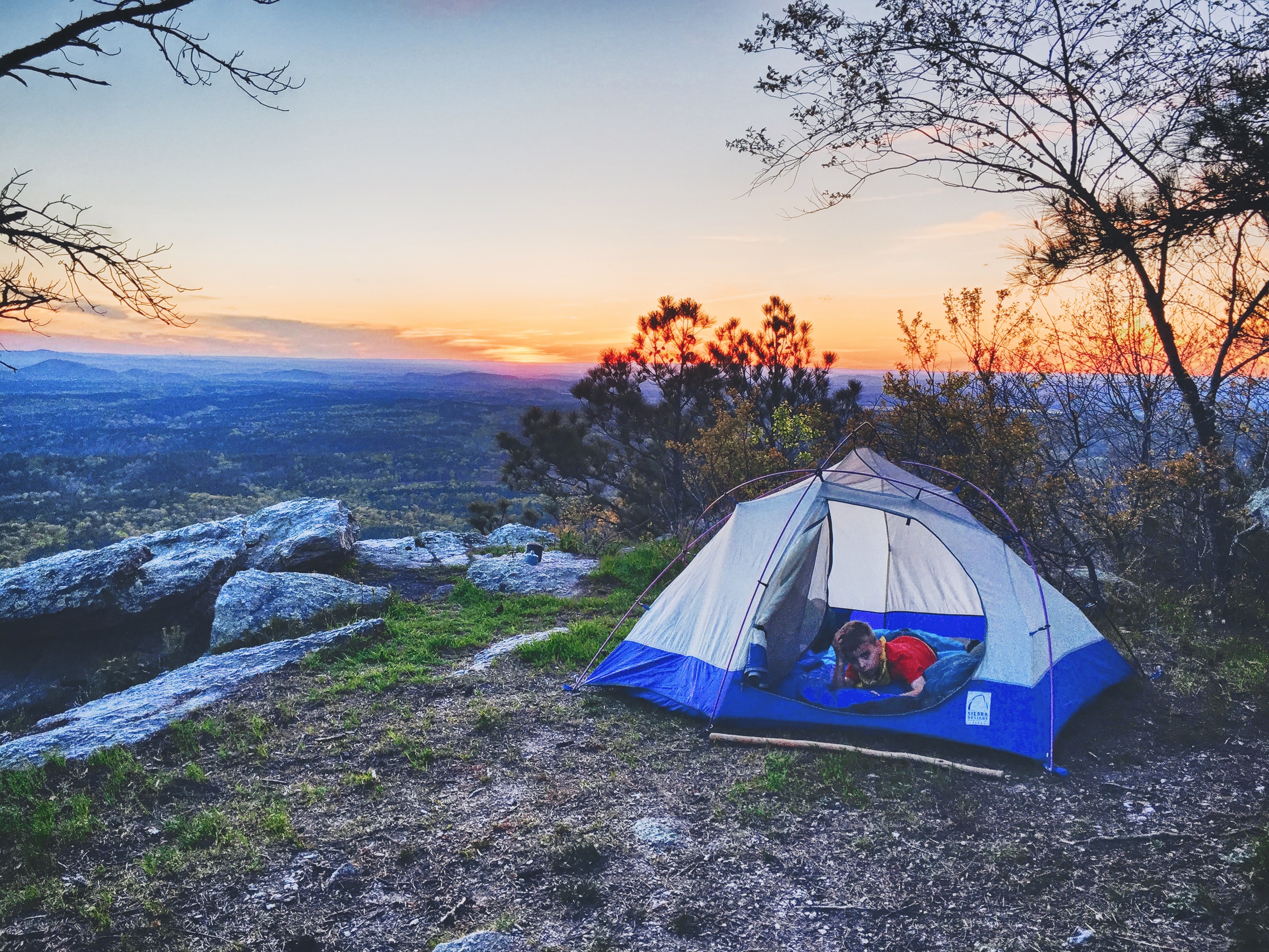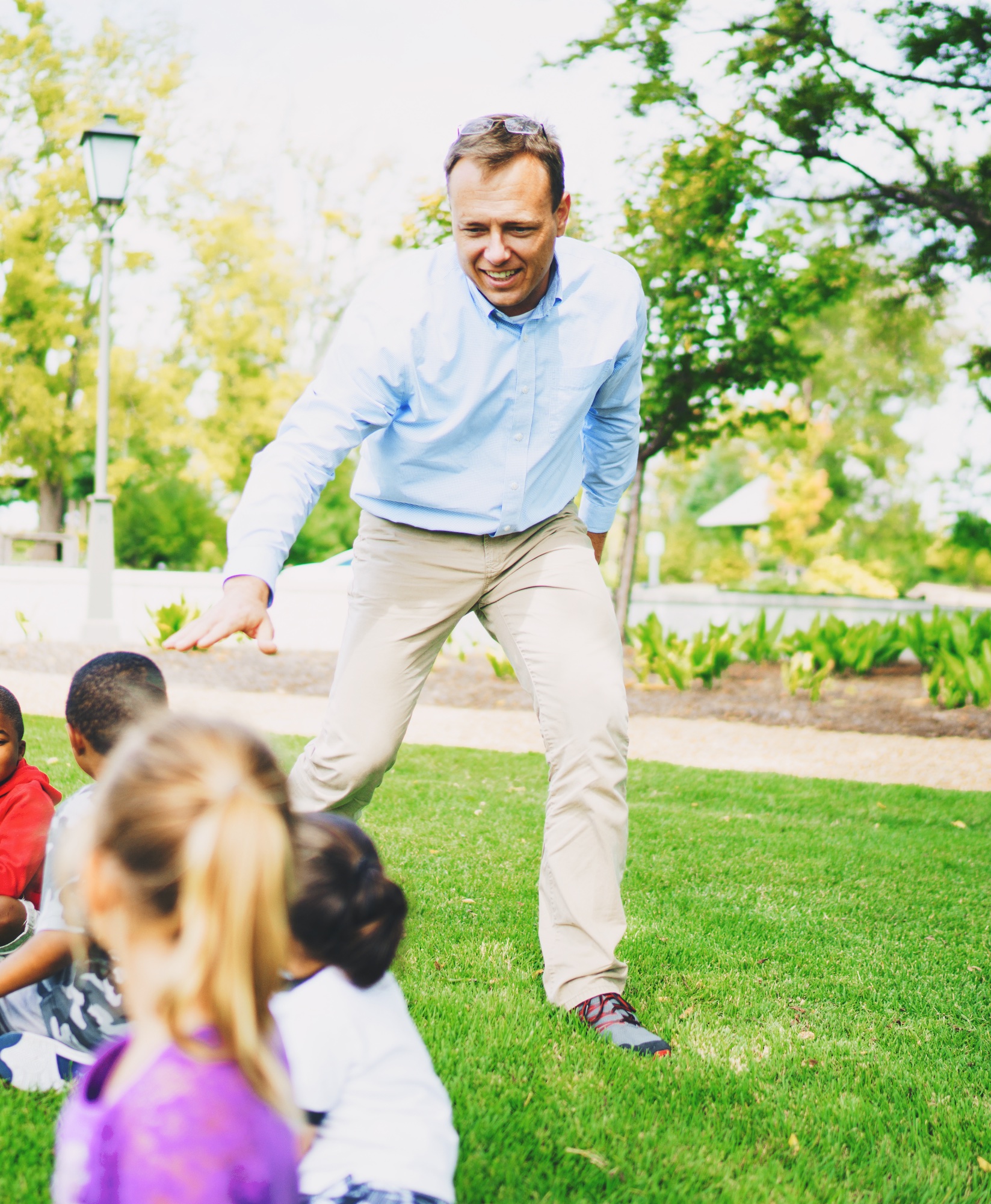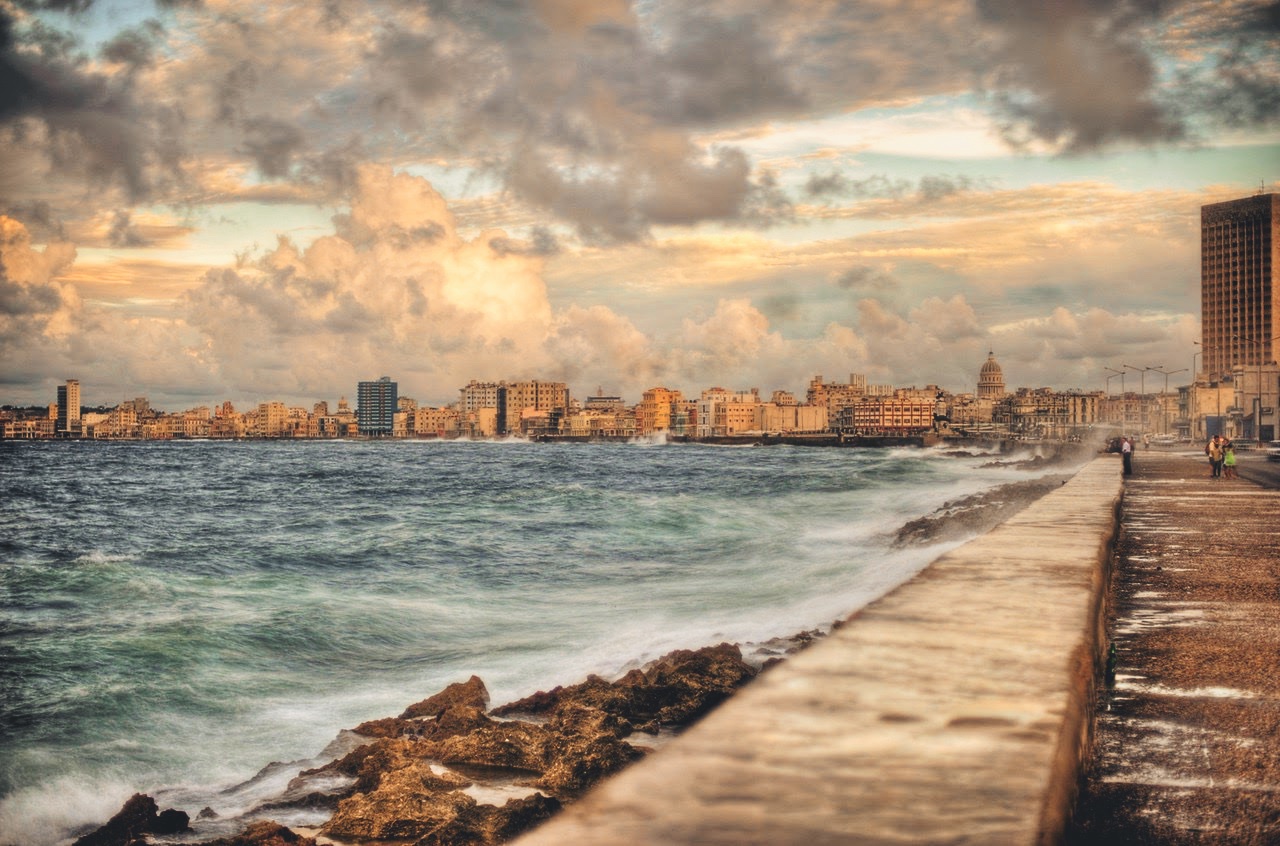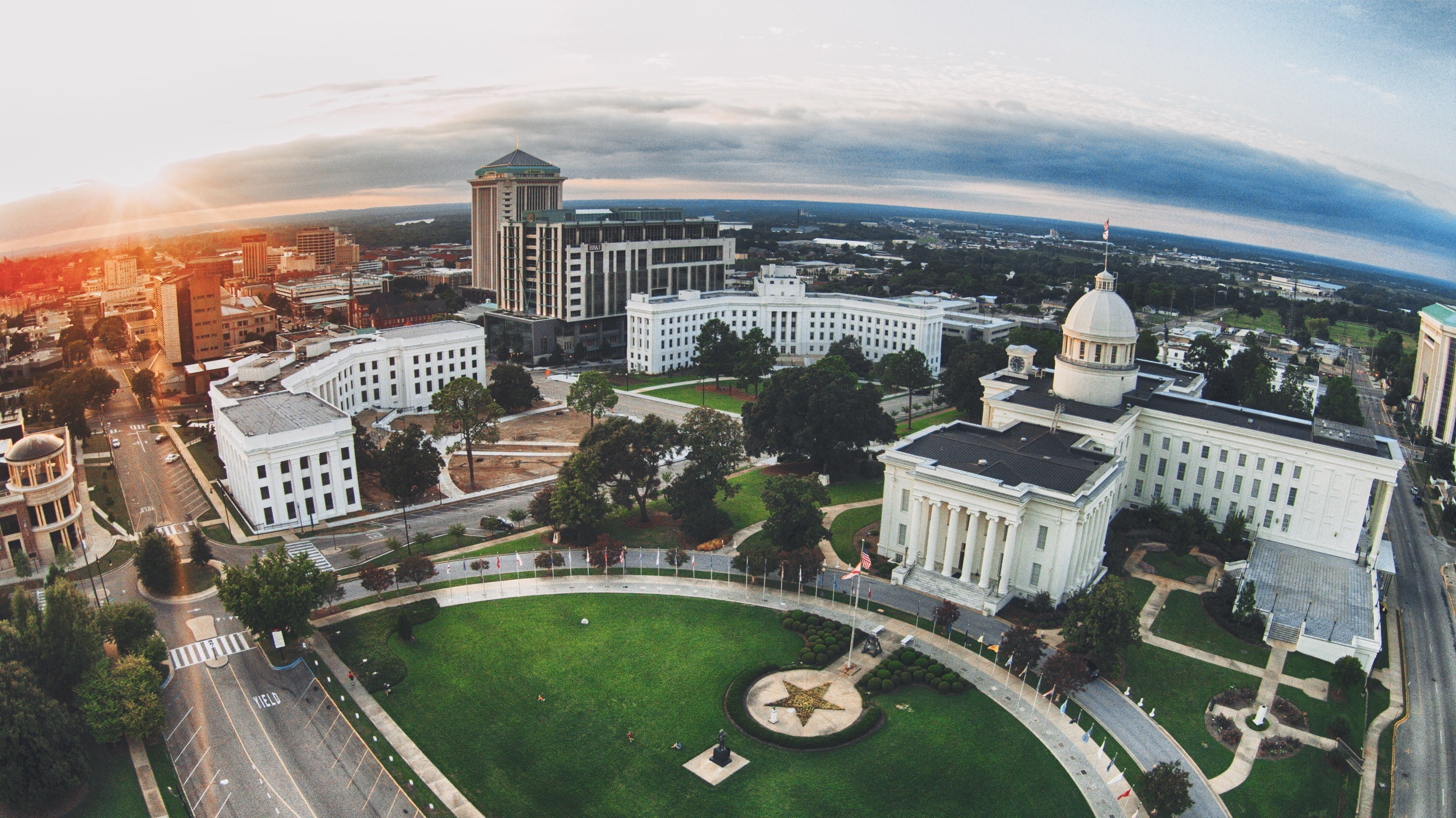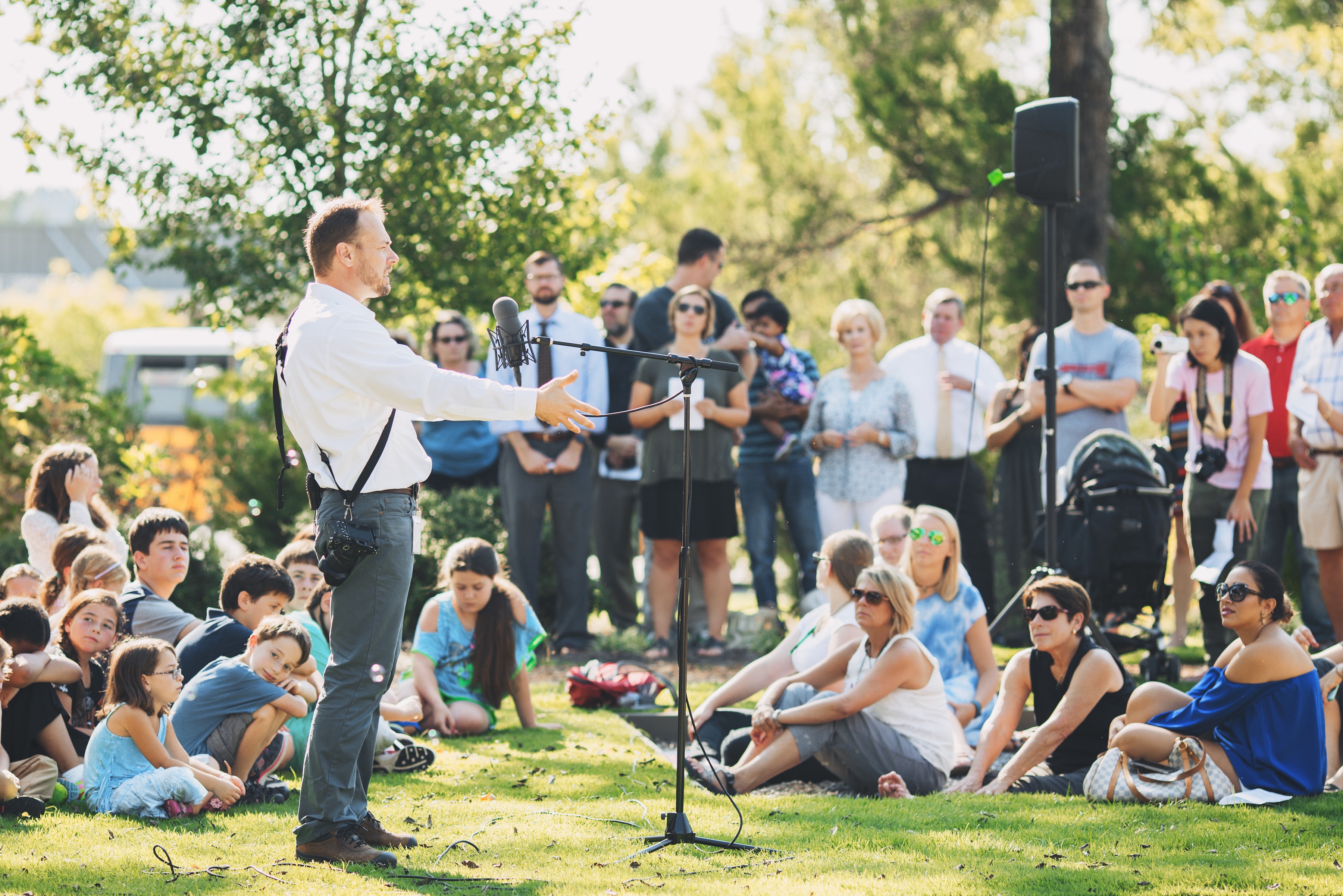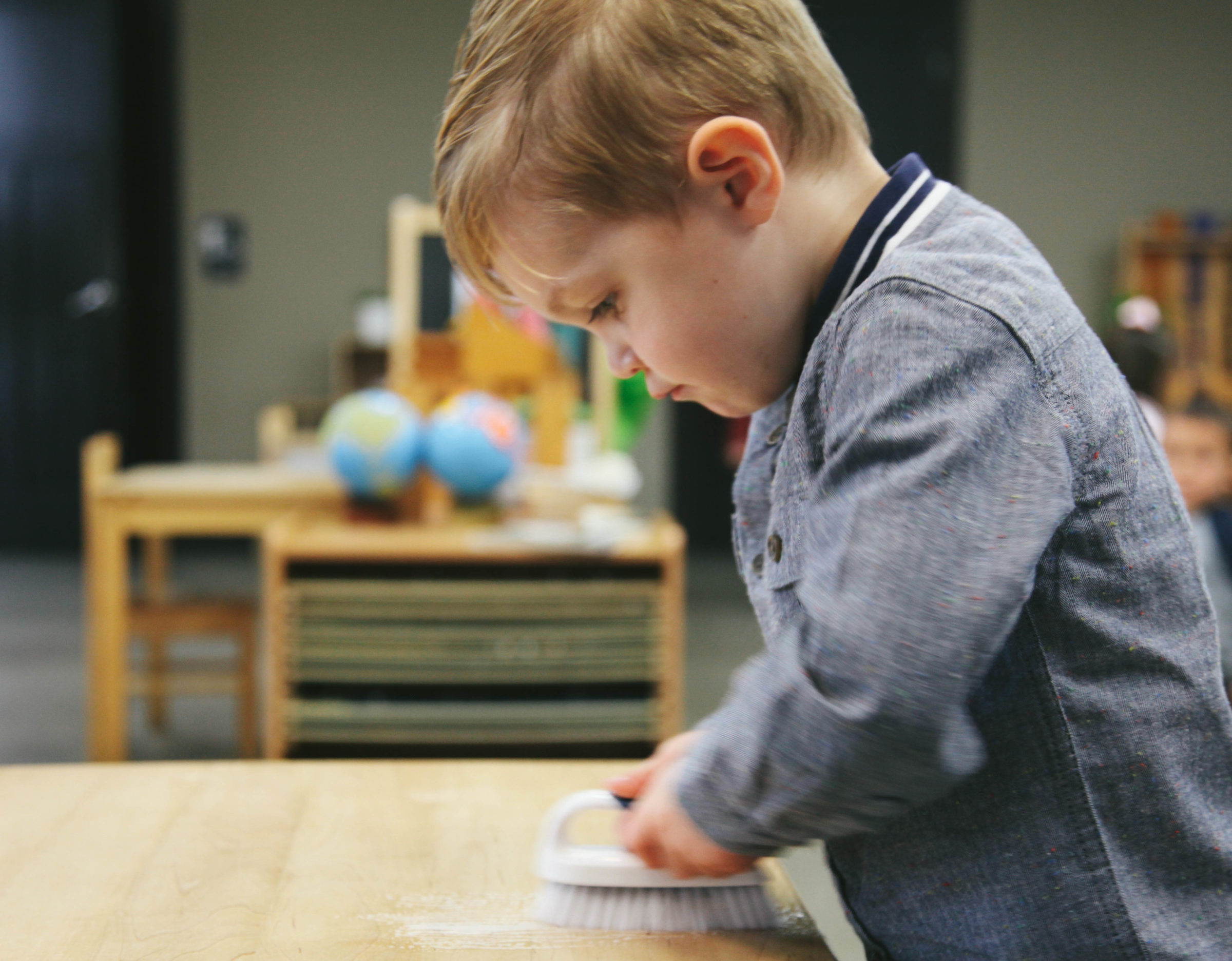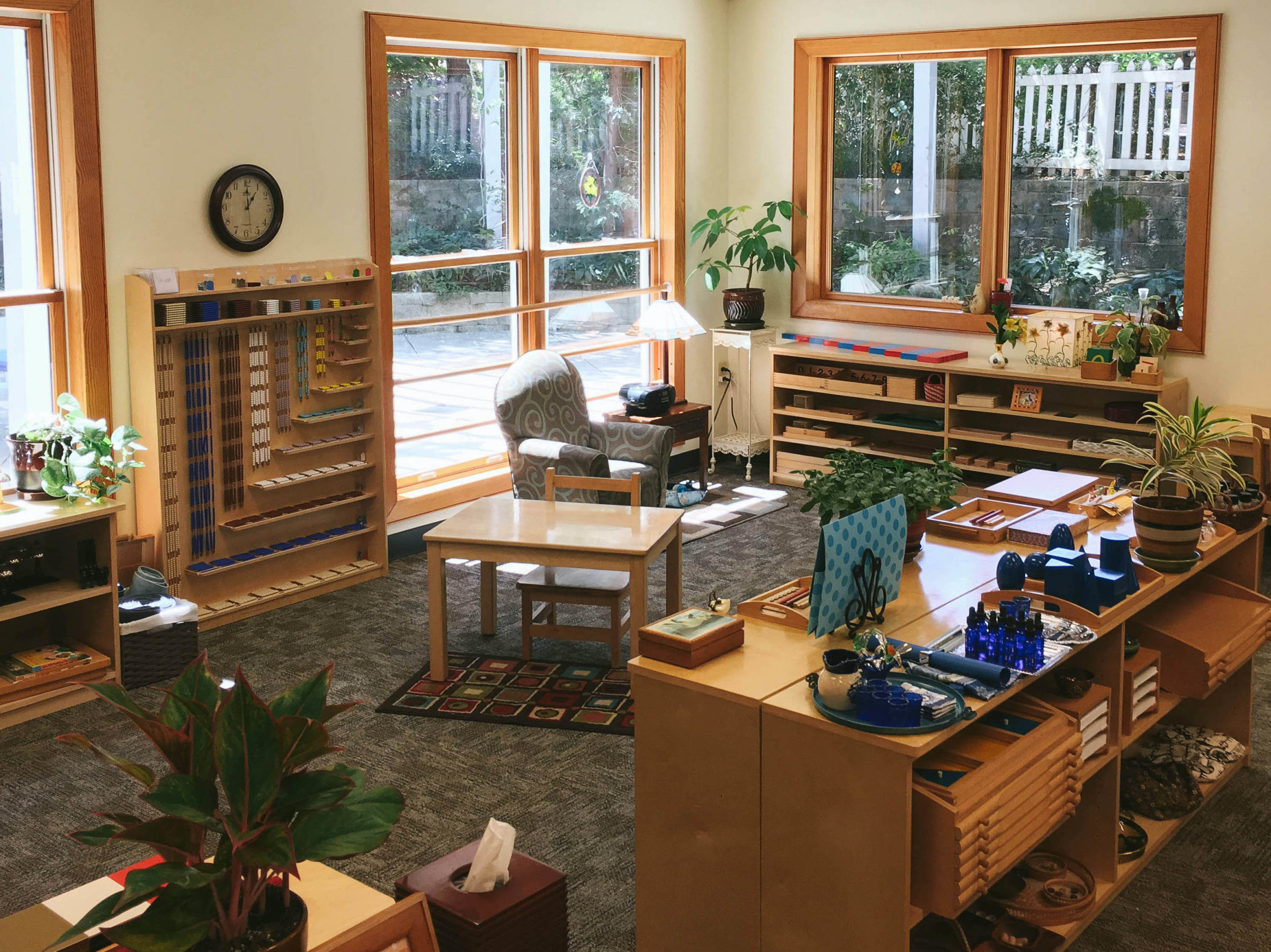Spotlight Josh Whitman
Spotlights
We are utterly thankful for relationships, inspiration, and camaraderie in the Montessori world, and how we all work to support one another to affect positive change in our own communities, and for children everywhere. One of these relationships and inspirations is with Montessori at Hampstead, and with their Head of School, Montessori parent and advocate Josh Whitman. We’ve loved learning about his work in Alabama, and we’re so honored to share his phenomenal photos and even more inspiring story here.
Q: Can you tell us a little bit about yourself? Your background, your interests, your dreams?
I am the parent of two boys, eight and five. I love spending time with my family. We enjoy traveling and being in nature. Photography is my creative outlet and a tool I use to connect with others. Crossfit, rowing, and swimming are my primary exercise outlets.
Prior to working in the Montessori space, I spent two decades working in politics and public policy as a way to fulfill my desire to have a meaningful impact on the world. During that same period, I focused heavily on my formal education which culminated with my completion of a Doctorate in Philosophy. I am a lifelong learner. I enjoy learning new things and working hard to solve complex problems.

I entered the Montessori world by chance. While making decisions about our boys’ early education, my wife and I began to perceive and question the assumptions that underpin much of our society’s dominant model of education. During that same time, I was struggling with feeling disconnected from my career. An opportunity arose for me to step in as the Head of School at my boys’ Montessori school to try and address some administrative weaknesses and ensure that our boys would continue to have a Montessori option as they grew older. That career change has been fulfilling and I am able to be with my children daily. As anyone who has worked in a school start-up knows, there have been many challenges. But, I have found that being in the Montessori environment allows me to share my passion for learning and to help others experience the magic of learning when it is driven from within.
Q: Now that the hardest question is out of the way: What’s your favorite color?
Ha – I love the whimsy in that question and it made me smile.
Prior to having children, I was always a person who favored the color blue. However, my boys show a strong connection with yellow, and they have helped me deepen my appreciation for the bright and vibrant.
Q: Do you have a favorite book? How about a film?
I’m not really a movie or TV show aficionado. I love to listen to podcasts and books. My current favorite podcasts are On Being, 99% Invisible, The Moth, and Radiolab. My boys and I enjoy listening to the podcasts Brains On! and The Show About Science. I think the democratization of content that podcasts represent is one of the reasons I connect with them.
I have so many favorite books that I cannot narrow it down to a single title as a favorite. Depending on the day and my mood and my musings I will swing between favorites. I tend to like books that help me perceive the world in a deeper and more colorful way. Parker Palmer, Eckhart Tolle, the Fourteenth Dalai Lama, Brené Brown, Carl G. Jung, Paulo Coelho, Hermann Hesse, Robert Pirsig, Richard Rohr, Helen Schucman, Neale Donald Walsch, Gabrielle Bernstein, James Redfield, and Ram Dass are all authors I deeply connect with. My boys and I have enjoyed all the books in the Magic Treehouse series, and we are nearly finished with the Harry Potter series. I always enjoy picking up a book by Michael Crichton, and I recently enjoyed The Magicians Trilogy by Lev Grossman (think Harry Potter for adults).
When I do watch movies, I appreciate documentaries and amazing cinematography. However, I’d have to say that the movie Contact, based on Carl Sagan’s book with the same title, has long been a favorite of mine. It does a masterful job showing the paradoxes of progress, technology, politics, and religion; all areas that have intrigued me over the years.
I grew up in a small town south of Cape Canaveral able to watch the shuttles launch into the deep mystery of space and the infinite. I am sure that some of my love for Sagan’s movie comes from watching those launches and imagining our/my place in the universe.
Q: When you close your eyes late at night, and imagine waking up and starting a new adventure: what is that adventure?
I love adventures. Although, my definition of adventure is less about risk and danger and more about excitement and uncertainty. My boys and I have long called the things we do “adventures.” To me, adventures are a state of mind or a way of living. Adventures are about staying curious and seeing things without preconceived ideas. Kids are really good at seeing life as an adventure. They aren’t simply going through a checklist of todo items. They do a much better job of staying in the present moment. I’ve found that staying in the present moment allows me to better perceive the opportunities for adventures in everyday activities, especially if I’m with my boys.
Saying yes to my boys’ imaginations and curiosity has given me many adventures. We will make a trip to the grocery store into an adventure by walking along the drainage ditch that runs behind the store. Or, we will make a trip to the gym an adventure by exploring the plants and flowers around the building.
When I have the ability to schedule an adventure, I love being in nature, traveling, and taking photos. Those things tend to make me focus more on the moment. I also really enjoy learning new things, solving complex problems, and taking naps. Those all present opportunities for adventures to me.
As I write this, my family is considering what to do over Thanksgiving or holiday breaks at the school. Visiting some tidal pools in Oregon or Washington is in the lead, but we are also considering a trip to the Grand Canyon or another of our many amazing National Parks.
Q: What first appealed to you about Montessori?
My wife took the lead in selecting a school for our children as our oldest child was turning one. I knew next to nothing about Montessori but was glad to have them at a school they clearly enjoyed. As they developed, I was able to experience at home the many benefits of a Montessori education such as helpfulness, independence, happiness, self motivation, emotional awareness, and clear communication. I began to perceive that things were done differently in a Montessori environment compared to the traditional model in which I grew up. Further, I perceived those differences would lead to my children avoiding issues I was struggling with regarding my desire to find a vocation rather than just a profession and finding my place in life. My perception of Montessori continued to expand as my wife and I had to make decisions about our son’s elementary education and we realized we were being driven by assumptions about education that we had been unconsciously carrying for years; assumptions that were not necessarily true or reflective of our priorities.
Q: Can you speak about how Montessori at Hampstead has grown?
Montessori at Hampstead is a small nonprofit Montessori school in Montgomery, Alabama. The school was started just over five years ago by a few passionate parents who experienced the benefits of another Montessori school that closed unexpectedly.
In its first year, Montessori at Hampstead had 50 students and it quickly grew to nearly 125 students. That rapid growth, while reflective of a good program, created instability and the school nearly closed because of it. Today, Montessori at Hampstead offers programs for students aged 12 months to 13 years old. We have 100 students from around the world because Montgomery benefits from a large international population attending the higher education schools located at Maxwell Air Force Base. As a parent, the international connection was important to me given the general homogeneity at other schools in the area and my belief that empathy is built, in-part, through connection with people of different cultures and beliefs.
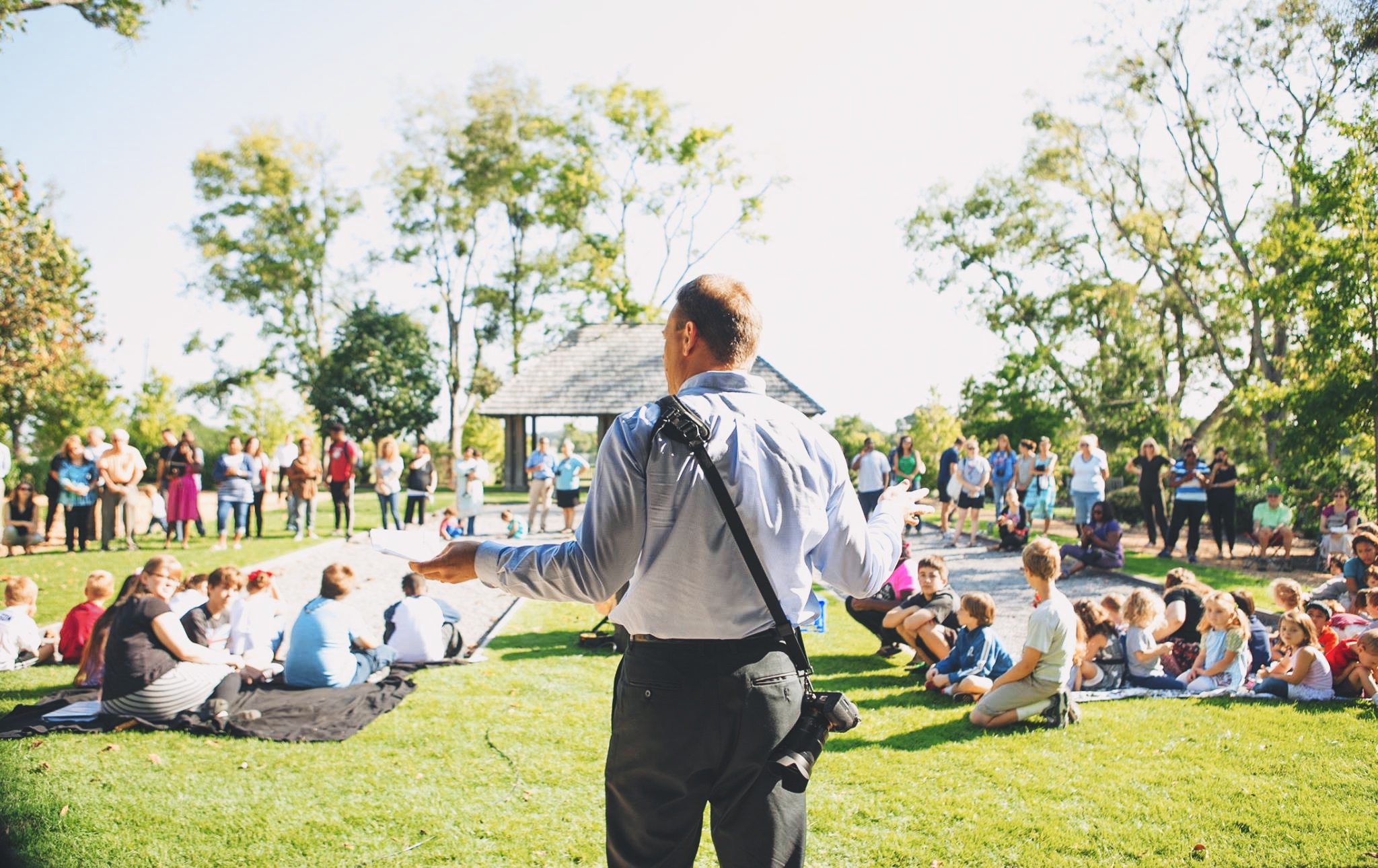
It seems to me that there are two dominant modes for starting a Montessori schools that extend beyond early childhood programs into elementary and beyond. One is through an endowment that allows a school to start with excellent facilities and experienced, credentialed teachers. The second is led by passionate parents or owners, often Montessori educators, who jump in without realizing that building a school is difficult and may take many years to reach their ultimate vision. I am grateful for those optimistic visionaries, because without them the school my boys attend would likely not exist.
Q: What advice do you have for new Montessori adults?
Connect with the teachers and administrators, ask all the questions you have about Montessori, and keep the dialog open. Volunteer in the classroom and participate in the field trips. I also suggest that parents work to incorporate various micro and macro concepts from the child’s classroom community into the child’s home, things like promoting independence over expedience and working to create a safe environment for communication and exploration.
On a deeper level, I lean on the metaphor that we, as parents, are gardeners for our children rather than creators of their future. Children are like the plants in the garden. They don’t need us to tell them how to grow, what direction they should reach toward, how many leaves they should have, or when they should pay attention to the changes of seasons. Those things are inherent in the DNA of a plant and a child. Rather, they need us to cultivate an environment that allows them to connect with their hearts and grow into whatever they have germinating within themselves.
This kind of philosophy is not an easy one to embrace given our culture of control. As a parent, it is not an easy one to put into practice given the love and concern we naturally have for our children. That’s where the hard work comes. I try to remain introspective, looking into and questioning my motives, desires, and most importantly, my fears, allows me to hold better space for my boys to find their path among the endless paths available to each child.
Q: Did you have a “Montessori Moment?”
As a Montessori parent and administrator, I have many. Nearly all of them involve perceiving how much more advanced a student is than she would have been had she been in a different educational space. One moment that stands out in my memory is how clearly my then three- or four-year-old son was able to articulate to me how he was feeling because of something I did. While I felt bad that whatever I had done hurt my child’s feelings, I was impressed and touched listening to my son communicate so clearly how and why he was feeling hurt and watching him work through those feelings with me.
“On a deeper level, I lean on the metaphor that we, as parents, are gardeners for our children rather than creators of their future.”
I love the heavy focus Montessori places on children’s ability to connect with and communicate their feelings. This communication allows children to explore their inner space in ways that I never did till much later in adulthood. Clear, honest communication with others also helps build empathy and connection in ways that can only lead to a brighter future for all of us.
Q: What’s your favorite Montessori quote?
“Of all things love is the most potent.”
The Ziggy Marley song, Love is My Religion, comes to mind every time I’m reminded of Montessori’s love quote. I find inspiration in both Maria’s quotation and Ziggy’s song.
Q: What advice do you have for new parents trying to incorporate Montessori at home?
Similar to the advice above, I’d suggest communicating with the child’s teacher guides. Increased communication with teacher guides helps ensure greater synergy between home and school, which in my experience leads to more significant child development than separate actions in the home and school spaces.
I also suggest parents connect with other parents. A school’s parent community is often an underutilized resource for parents looking to expand their knowledge on Montessori and creative ways to incorporate it into their child’s home. Playdates and birthday parties are great opportunities to connect as are school socials and field trips.
If a parent is interested in understanding more about the Montessori classroom and how the children work in the classroom, I suggest the book Understanding the Human Being by Silvana Montanaro or some journal articles by Angeline Lillard.
If a parent is interested in hearing directly from Maria Montessori, I suggest her book, The Secret of Childhood. It is among the clearest of her books, and I like the translation by Barbara Carter.
Lastly, the internet and technology represent a wide set of resources that parents can lean on. One of my very favorite online resources and communities is the Primary app by the great folks at Montessorium. Primary creates an online space for parents from around the world to engage and share with each other in a way that allows us all to grow and develop. Montessorium also has several exceptionally well-designed and implemented Montessori apps that allow users to bring Montessori lessons into their homes via electronic Montessori materials. There are also some great social media communities that parents can engage with, and Pinterest provides many creative ideas for incorporating Montessori into the home environment.
Q: What do you think is the best introduction to Montessori?
Montessori students provide the very best introduction to a Montessori environment. Often, this exposure comes in social settings outside the school where people engage with a Montessori child and are struck by their independence and the clarity with which they communicate their feelings. However, those interactions are difficult to predict or facilitate for parents investigating educational options for their children.
“Montessori students provide the very best introduction to a Montessori environment.”
The most reliable way to introduce people to the Montessori philosophy and materials is to have them tour a Montessori school and observe the classroom communities during the work cycle. The parents who tour our school during the work cycle often walk away in awe of how amazing and different a Montessori work cycle is compared to the traditional model of education that most of them experienced when they were young.
Beyond that, most people have already been exposed to Montessori without even realizing it through the work of many famous Montessorians. There are many excellent examples of Montessori students going on to be great leaders in their chosen fields. Some names you might recognize are Anne Frank (WWII Diarist), Larry Page & Sergey Brin (Founders of Google), Jeff Bezos (Founder of Amazon.com), Prince William & Prince Henry (English Royal Family), Bill Gates (Microsoft Founder), Joshua Bell (Violinist), David Blaine (Illusionist), T. Berry Brazelton (Pediatrician), George Clooney (Actor), John & Joan Cusack (Actors), Erik Erikson (Psychologist), Jean Piaget (Psychologist), Robert Frost (Poet), Fred Rogers (Mr. Rogers), Peter Drucker (Author), Julia Child (Celebrity Chef), Helen Hunt (Actor), Jacqueline Kennedy Onassis (First Lady), Yo Yo Ma (Cellist), Katherine Graham (Former Washington Post Owner), Taylor Swift (Singer), Will Wright (Video Game Developer), Beyonce Knowles (Singer), Friedensreich Hundertwasser (Artist & Architect), Helen Keller (Author), and Gabriel Garcia Marquez (Author)
Q: What continues to inspire you about Montessori?
I am regularly inspired by my children and by the teachers and students in the school. The inspiration can come when I watch a child succeed at something he has worked so diligently at or when I hear two children effectively address a conflict they have had. I find the artwork and other creative works the students produce to be extremely inspiring.
As an administrator, when I am feeling especially drained or in need of inspiration, I will spend time in a classroom. Just watching the classroom is always recharging and a helpful reminder of why we, as teachers and administrators, do what we do.
Q: In what ways do you envision the future of education?
I believe we will see a steady increase in individualization and customization of students’ educational paths through the thoughtful use of technology in the classroom. To a lesser degree, I feel we will see an increase in schools prioritizing children’s creativity over memorization standards. Hopefully, social and emotional growth will continue to increase in importance as well. Unfortunately, I also think there will be continued and deepening conflict/tension in the political and policy spaces surrounding education.
In the Montessori space, we follow the child which is our overarching way of customizing education for each child. I continue to see both the demand and need for this kind of individualization growing in all educational spaces. However, given the limited training on customization that most professional educators receive, I anticipate technology helping to fill the gap until teacher training can catch up to demand.
As Ken Robinson is so good at articulating, the current educational system is modeled off a mid-18th-century industrial production, assembly line model. To see the future of education, I’d suggest looking at the ways in which the assembly line has changed over the last 150+ years to address changing market conditions. This will give us some insights into the incremental possibilities/probabilities available to make changes in the current educational system.
“I am regularly inspired by my children and by the teachers and students in the school.”
I recently took a tour of the Volvo manufacturing facility in Gothenburg, Sweden. While their assembly line model still resembles the moving assembly line approach popularized by Henry Ford in the early 1900’s, there are ample differences worth consideration. The one I want to discuss is real-time customization/individualization. The Volvo plant in Gothenburg does not begin production of a car until it has been ordered, and each model they produce has many different combinations of the various options and configurations. Once the order is placed, the manufacturing process begins and that process is done on a first order, first produced basis which means from one car to the next on the assembly line there can be differences in model and options. To achieve this ability to customize and individualize each vehicle on the line, Volvo (and other automobile manufactures) had to creatively consider possible changes in the manufacturing model that would allow them to achieve this level of individualization.
Underpinning this model is an amazing use of technology and a just-in-time delivery system that was built to support this in-line, real time customization and individualization. For example, the company that produces the seats for Volvo has only a couple of hours to produce and deliver the customized seats to the manufacturing facility in the order that the vehicles are on the assembly line to be inserted into the cars as they move down the line. This level of individualization and just-in-time delivery would not be possible without the heavy use of technology. I see potential for using technology in a similar, thoughtful way to help produce a more individualized approach to education on the scale necessary. Children are all different and so are their best educational paths. Technology is the most likely way to allow a larger group of non-Montessori schools to offer a more child-centered/”follow the child” approach.
Q: Where do you see Montessori in the next 100 years?
My prior career involved working in the public policy space around many issues, including education. The wheels of change move extremely slowly and incrementally in public policy, especially related to education. I anticipate the Montessori footprint will continue to grow, although not nearly as fast as we’d like to see it expand. I also anticipate that academic researchers will continue to find that the underpinning values/ideas/assumptions of a Montessori education are accurate and worth implementing at a deeper level in all education systems.
“Just watching the classroom is always recharging and a helpful reminder of why we, as teachers and administrators, do what we do.”
But, that’s not to say that Montessori won’t have some incremental changes as well. For example, if the per capita footprint is to grow, we must do a better job of incorporating technology into the classroom and management of our schools.
Written by:
Charlotte Snyder



